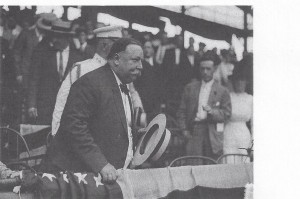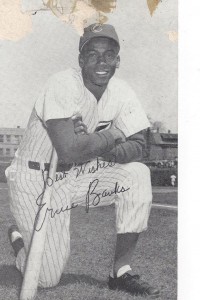Kieran & Max’s Stag/Stagette Party [Into Extra Innings]
At every nine inning baseball game (high schoolers and Little Leaguers and softballers only play seven innings), all the fans stand up and stretch and sing “Take Me Out to the Ballpark.” I’ve never been to a nine inning game where this didn’t happen – it’s a rock solid baseball tradition that goes back to President Taft days. Legend has it that our overweight President was in attendance and just after the conclusion of the top of the 7th decided he needed to stretch. When he stood up all the fans in attendance stood too, and ever since there’s been a 7th Inning stretch in the middle of the 7th.
Believing that some of you baseball fans never want the game to end, let’s go to extra innings. Let me tell you about Kieran & Max’s Stag/Stagette Party……
…… Kieran & Maxine are a couple of the lifelong friends I’ve met through baseball. Kieran has been the shortstop on our Bluebirds team since 1980. 2023 will be his 43rd straight season – Minnie Minosoesque. For the first 25 years I played behind him in the outfield, but I’ve slowed down lately and no longer have the arm I once had, so now I play first base.
Maxine went to Southwest State with Jane (Minton) and Dave, who were already friends from growing up in Belle Plain. Shortly after college, Dave fell in with an Irish Dancing – Celli crowd and moved into a duplex in St. Paul known for its progressive politics and, in particular, its stance on the IRA. Soon Jane and Max moved into the other half. By the time I arrived on the scene (from law school out east) there were three single men living on Dave’s side and three single women living on Jane’s side, all with the kind of politics I was hoping to find upon returning to Minnesota – especially the ballplaying / “if I can’t dance, I won’t join your revolution” kind of politics. (For how I got in touch with this group, read the story “Riff Raff Freight Hopping.”)
At any rate, Maxine went to an Irish dance with Jane, met Kieran, and this led to Kieran (a ballplayer) meeting Dave (also a ballplayer) and the rest is history – except the party we had at the duplex in honor of Max’s saying yes to Kieran’s marriage proposal. From the get-go there was no way this would just be a stag party for men only. We loved having women around and we were all for equality. And on the women’s side they certainly believed they were the equal of us. So it was a Stag/Stagette Party (although that’s not what we called it then – it was only after the men acted a lot like it was a stag party that it’s been referred to as such).
Jane & Maxine invited all their friends and Dave & Kieran invited all their friends. When a poker game started up on Dave’s side (happened to be only men), the non-players began to drift to Jane’s side. A little later Jane came over and complained it was starting to look too much like “the women gathering in the kitchen” type of a party – “Come on you guys, let’s have some fun together.” This prompted one of the poker players (who shall remain anonymous) to suggest (after Jane left): “Hey Guys, let’s take all our clothes off and play naked for the next time they show up.”
When we did this, some of Kieran’s friends just plain cleared out – not just going over to Jane’s side, but leaving the party altogether. The poker game continued intact; all of us acting as if we were dressed normally. The next time Jane came over to check on us, she couldn’t believe her eyes! And dashed back to the other side to spread the word. Quite a few party-goers of both sexes came over to witness the scene for themselves. Soon we put our clothes back on and everybody started dancing.
#####################
END OF GROWING UP – sorry folks, that’s it for daily doses – THANKS for being readers.






